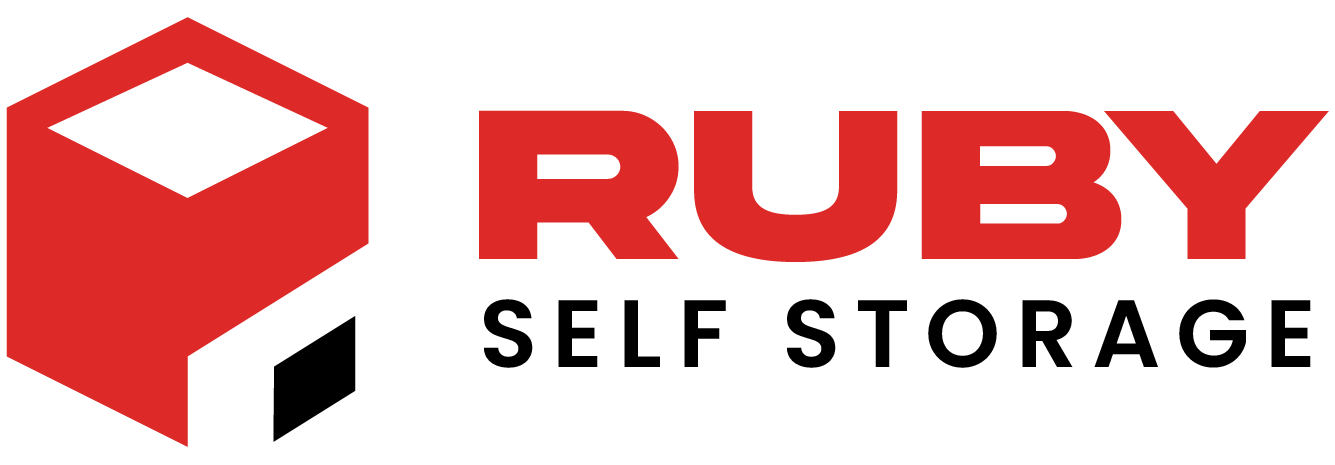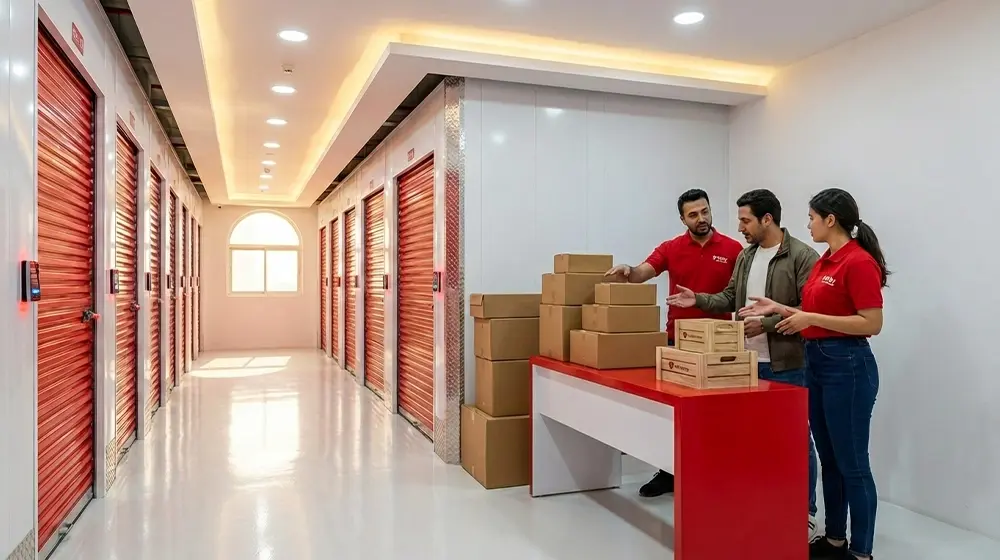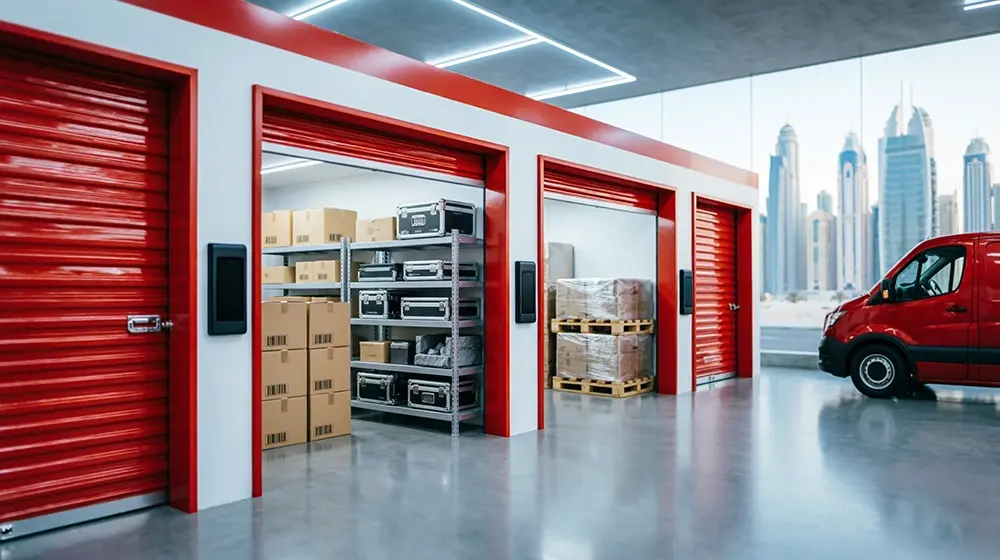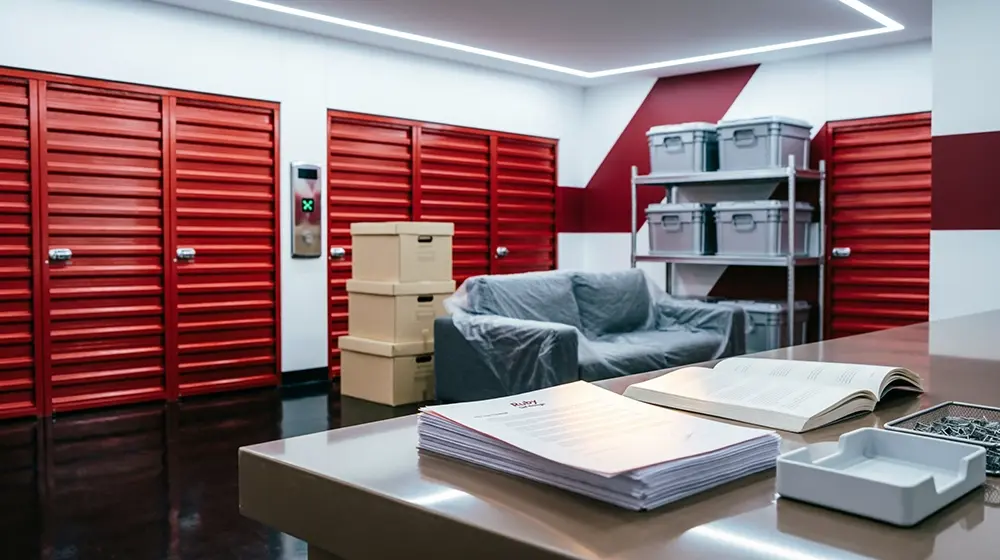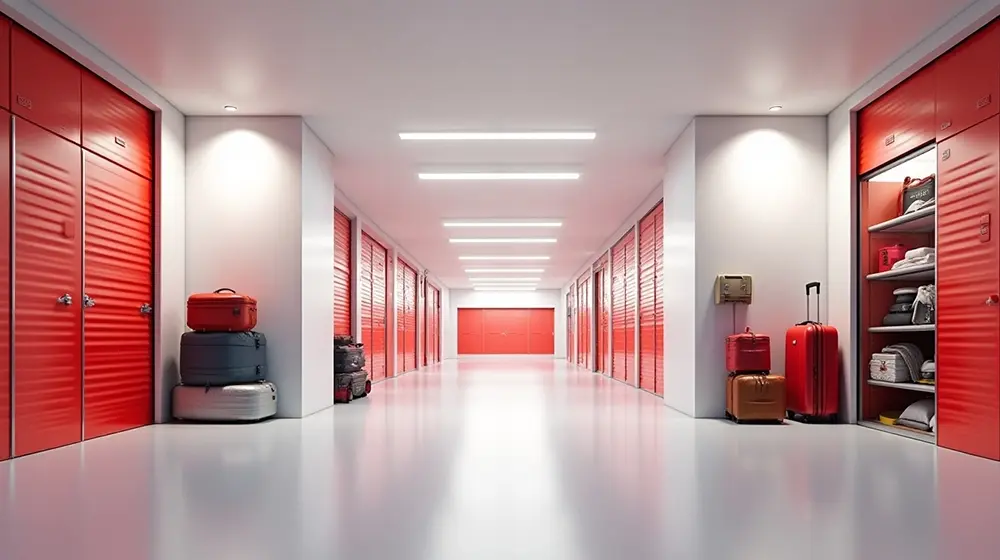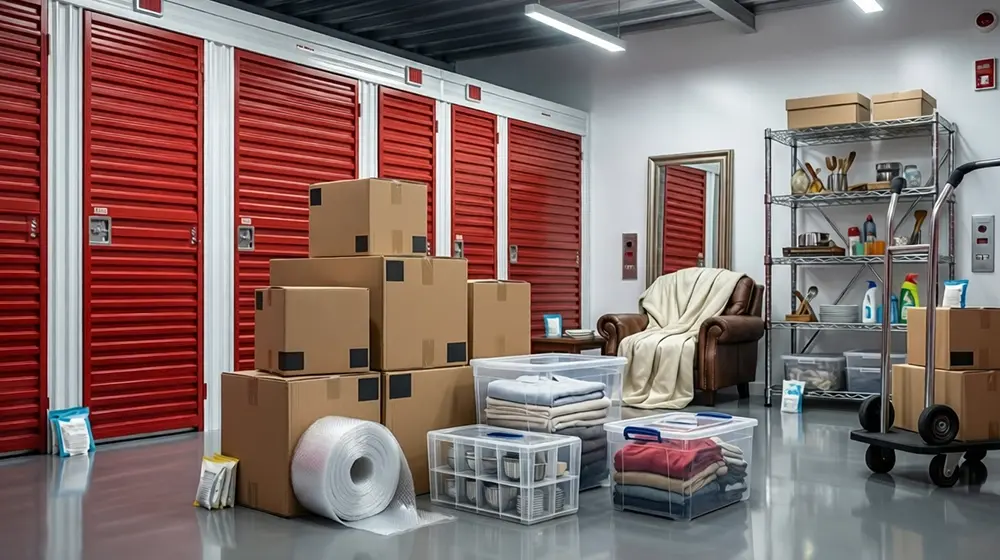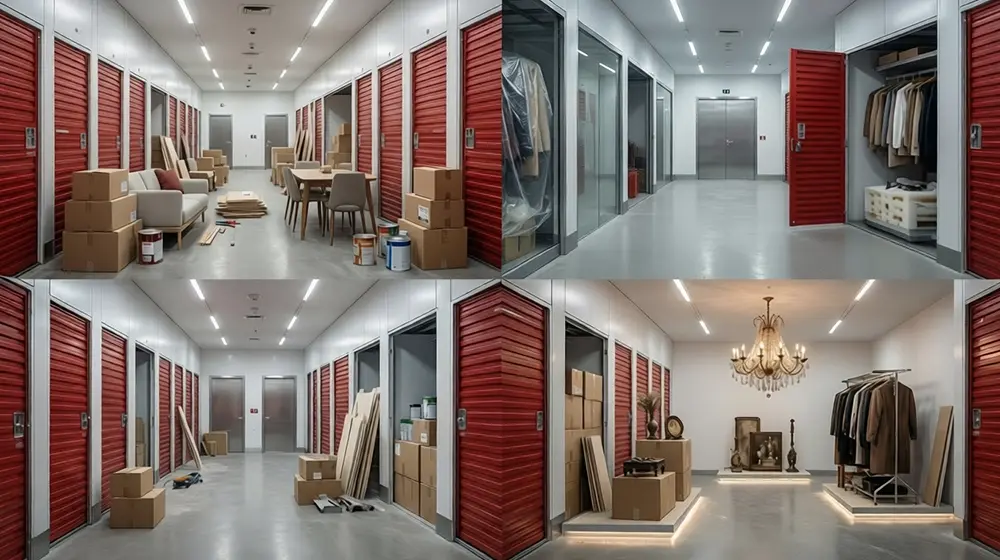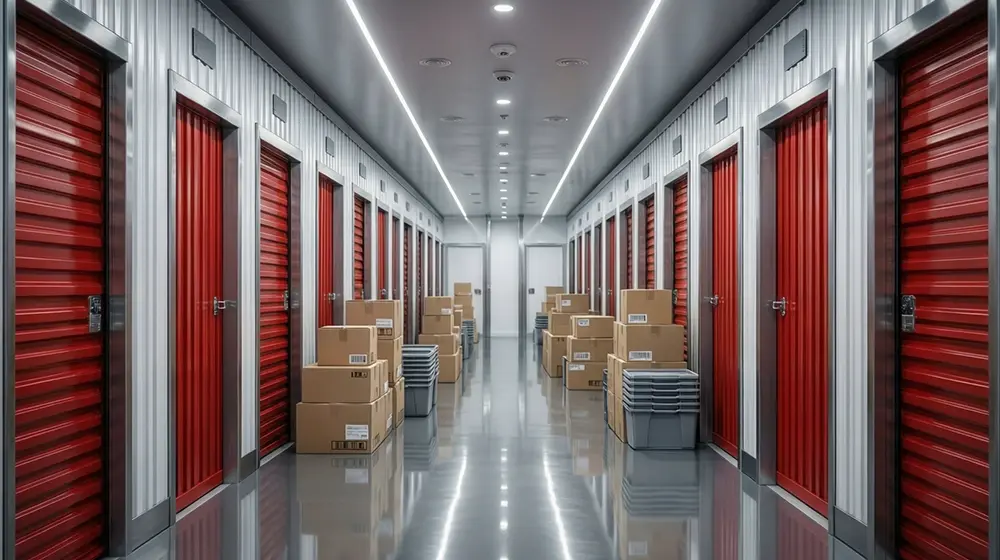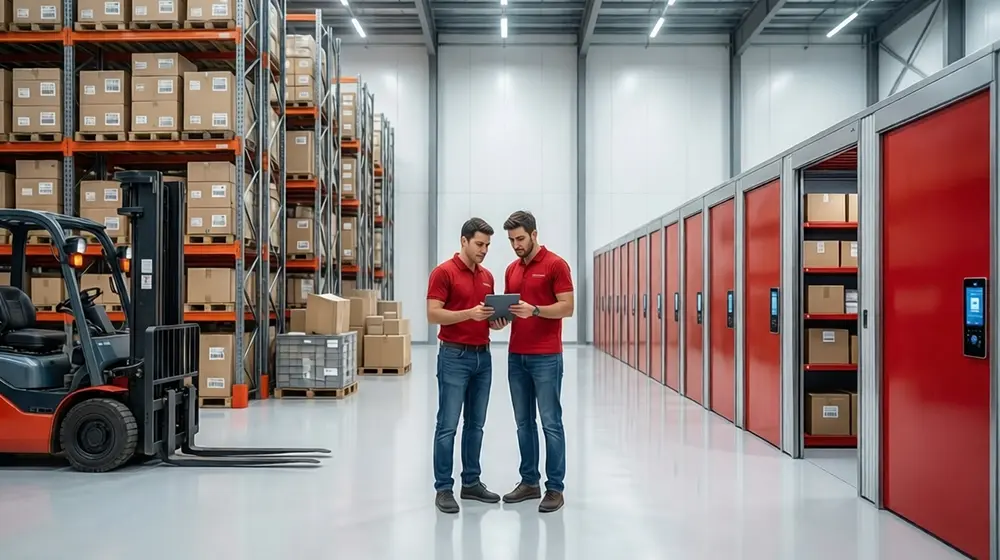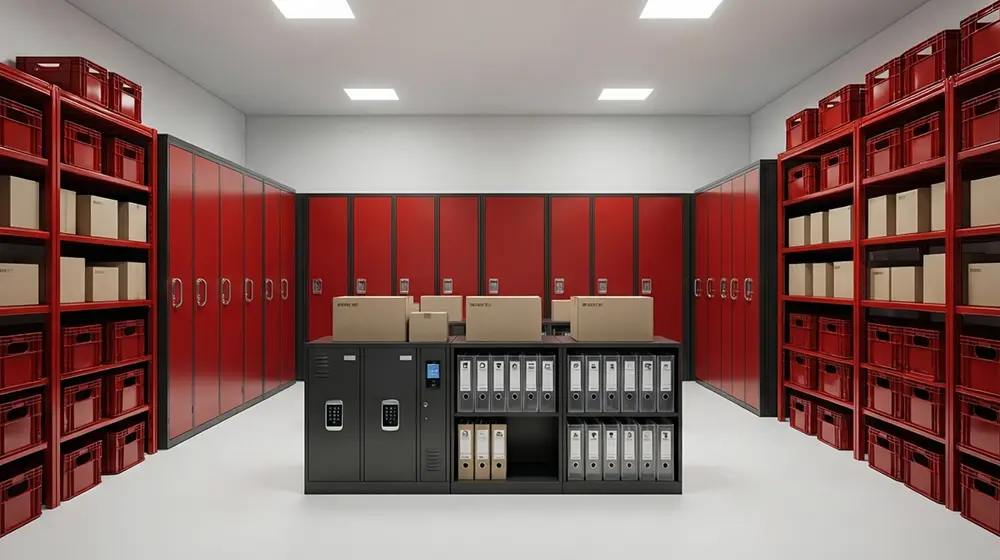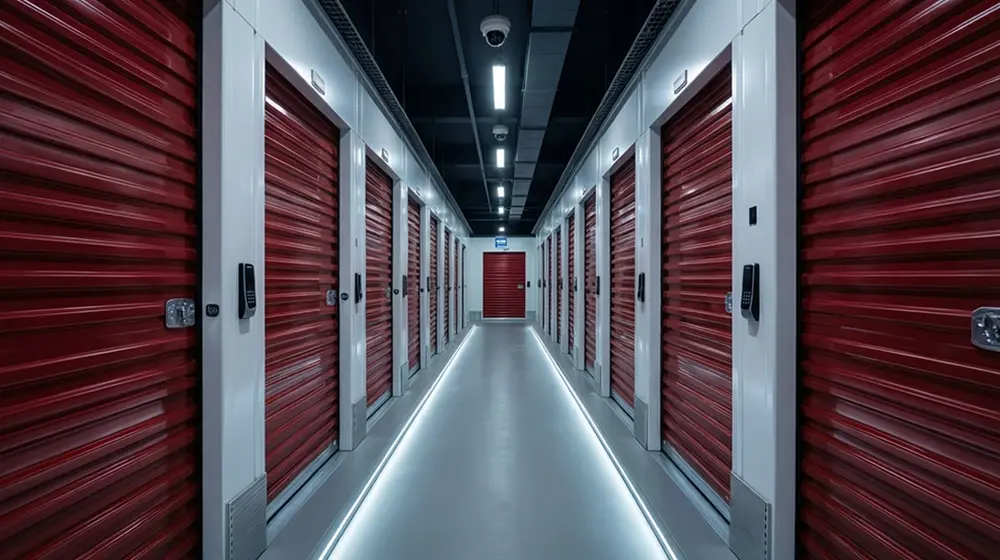City homes in the UAE are compact. Wardrobes fill fast. Hallways carry boxes. Clutter reduces living quality. Box storage solves the space strain with secure, climate-controlled units and on-demand pickup options. This article explains what box storage is, why it matters for urban living in the UAE, and how a smart, compact system fits real apartments.
What Is Box Storage in the UAE?
Box storage in the UAE refers to secure, rented spaces designed to hold personal or business belongings outside the home or workplace. Facilities typically feature climate control, 24-hour CCTV monitoring, coded entry, and short-term or monthly rental options. Several providers, including The box self storage services, now offer door-to-door collection and return services for urban clients who prefer convenience and reduced travel time.
Core Features of Modern Box Storage Facilities
Modern box-storage companies operate with integrated logistics models rather than static warehouse rental. They rely on digital booking systems, customer apps, and tiered security protocols to meet urban expectations.
- Climate-Controlled Environments: The climate-controlled segment in the UAE’s storage industry is projected to grow nearly 10 % annually through 2030.
- Flexible Leasing: Rental terms of one month are offered by the providers, and upsizing or downsizing of units is possible instantly.
- Technology Integration: Online dashboards and pickup schedules, along with payment tracking, are rooted as standards nowadays.
- Prime Urban Locations: Dubai Marina and JLT, as well as Al Reem Island and Business Bay facilities, continue to ensure access times of less than 20 minutes to the majority of residents.
Why is demand rising for box storage in UAE cities?
Living in a compact city compels individuals to maximize what is available in every square meter. Storage in high-rise districts is minimal, and the cellar is uncommon. Box storage offers instant overflow, which responds to life events and inventory requirements.
Urban space pressure and turnover
The UAE is a very urbanized country. Over four out of five are urban residents, which means that demand is concentrated in cities with smaller apartments and a high rate of turnover. This results in peaks of temporary storage in terms of moves, renovations, and transitions between leases.
- In the crowded districts, facilities often compel their residents to tight closets and small utility rooms, which boosts the external storage uptake.
- The high frequency of relocations in and out of the Emirates raises short-term storage requirements of boxed items and furniture.
Economic and lifestyle drivers
UAE Box storage is advantaged by a number of demand-side forces. Organizing intermittent spikes of safe, climate-regulated space is done because the expat mobility and flexible leases offer such space. Units operate as mini-warehouses to manage the stock, returns, or event materials by SMEs and online sellers.
- Mobility and temporary housing: The trend of moving professionals who perform through free zones and business hubs creates increased demand for month-to-month storage.
- E-commerce momentum: Operators note merchants taking up 50-150 sq ft units to handle overflow, and the national storage market is the way into growing revenue through to 2030, namely.
- Unit economics vs living space: Some emirates have entry prices as low as AED 400-450/month for climate-controlled 5 m2 units, much less than the price of renting additional residential area solely to store items.
- Real estate context: The developers and analysts also observe that the demand for external storage persists as urban formats continue to develop and keep the service good in compact living.
How does box storage work in the UAE?
Urban residents want simple storage that fits small apartments and busy schedules. Box storage in the UAE delivers three service paths and a short, app-based process. Facilities add climate control, CCTV, and flexible terms to protect items in extreme heat.
Service types explained
1) Standard unit rental
You rent a private unit sized to your inventory, from compact lockers to full rooms, and access it during stated hours. Leading UAE providers list sizes from 12 sq ft up to 1,000 sq ft, covering a few cartons to full apartment contents.
2) Valet or on-demand pick-up storage
A crew collects sealed boxes or furniture from your door, stores them securely, then returns items when requested via app or WhatsApp.
3) Business and inventory storage for SMEs and e-commerce
SMEs use units as micro-warehouses for overflow, returns, or seasonal stock, often integrating delivery runs from storage to customers. Market tracking in the UAE shows steady growth in operator count and SME usage alongside rising e-commerce demand.
What are the benefits of box storage for urban dwellers in the UAE?
Compact apartments, rising rents, and intense summer heat shape daily life in UAE cities. Box storage adds space without moving homes and protects items from heat and humidity. The model fits high-rise districts and mobile lifestyles across Dubai and Abu Dhabi.
Space efficiency: clear rooms, keep essentials at home
Box storage moves infrequently used items out of living areas, so wardrobes and utility rooms stay functional. Typical providers offer units from 12 sq ft lockers to 1,000 sq ft rooms, so residents can right-size capacity to actual volume instead of overpaying for larger flats.
Flexibility: month-to-month coverage for life events
Short contracts fit lease gaps, renovations, and relocations. Free-zone and city labor mobility keeps churn high, which elevates month-to-month storage demand, especially in expat communities. Many UAE operators now let users upscale or downscale units via app in one billing cycle, aligning space with actual need.
Cost savings: add capacity without renting a bigger flat
Rents climbed sharply in 2024, with Dubai apartment rents up 14.3% year-on-year in Q1 and 12% by Q4, which raised the monthly cost of upsizing purely for storage.
Protection: climate-controlled storage for heat and humidity
Summer highs in Dubai average around 40–41 °C in August, with inland peaks reported above 50 °C, which risks damage to wood, textiles, and electronics. Facilities advertise air-conditioned units that stabilize temperature and humidity to reduce warping, mold, and battery degradation.
Peace of mind: security, insurance options, and predictable access
Providers list 24/7 CCTV, staffed security, and controlled entry as baseline security features, with published access windows and optional insurance for stored goods. Door-to-door models reduce reliance on friends or spare rooms. App-based retrieval shortens the time to access specific boxes or items.
What problem does box storage solve in hot, humid coastal cities?
Summer heat and coastal humidity in the UAE damage wood, paper, fabrics, and electronics. Climate-controlled box storage reduces this risk by stabilizing temperature and relative humidity for months at a time.
Heat and humidity exceed safe ranges for stored goods
Peak summer in Dubai averages daily highs near 41–42 °C in August, with the hot season above 38 °C for more than four months. Inland stations have logged spikes above 51 °C, confirming extreme events that stress materials. Coastal humidity often sits around 60% RH on average and ranges from 53–65% RH across the year. Museums and conservation guidelines aim for ~45–55% RH to prevent warping and mold, a range well below many UAE summer conditions.
What items benefit most in the UAE coastal cities
- Furniture and wood finishes: less warping and joint movement when RH stays near 45–55%.
- Paper, documents, and textiles: lower mold risk when RH remains below 60%.
- Electronics and batteries: reduced corrosion and moisture-induced failures at controlled RH.
What cost should you expect?
Prices anchor decisions for urban living in the UAE. Box storage adds capacity without the rent burden of a larger flat. Below is a focused, figures-first view of market size, unit trends, entry pricing, and a simple cost comparison for a 30 m² apartment tenant.
1) Unit-size revenue mix: what residents actually choose
Analysts report “medium” units as the largest revenue segment in 2024, while “large” units are the fastest-growing to 2030, signaling demand from both apartment households and inventory-heavy users.
2) Cost context vs renting a bigger apartment
Residential rents climbed across 2024, with Dubai apartment rents up ~12% year-on-year, due to the increase in the monthly cost of upsizing purely for storage capacity.
Implication: Even at AED 1,000/month, external storage can undercut the rent premium of a larger flat during periods of double-digit annual rent growth, while keeping climate control and security for sensitive items.
What core benefits does box storage deliver to urban living in the UAE?
The homes in the city are time, space, and budget-constrained. Box storage creates additional space, reduces expenses, and secures valuables during hot seasons for residents. The model corresponds with high-density and vertically-oriented districts of Dubai and Abu Dhabi.
1) Space gain: reclaim floor area without moving
Urban UAE is highly concentrated, with ~88% of people living in cities, so apartments carry storage pressure. Providers offer ladders from ~12 sq ft lockers to ~1,000 sq ft rooms, allowing residents to shift infrequently used items off-site and keep essential items accessible at home.
2) Flexibility: short terms for life transitions
Lease gaps, renovations, and job moves are common in high-mobility cities. UAE apartment rents rose ~12% year-on-year by Q4 2024, so short, scalable storage contracts help bridge periods without committing to larger flats. Major operators support month-to-month plans, quick upgrades or downgrades, and digital management.
3) Cost control: capacity at a lower monthly outlay
Most box storage facilities list 5 m² climate-controlled units with 24/7 CCTV starting around AED 400–450/month. In contrast, upsizing an apartment in a rising-rent environment can add thousands of dirhams yearly.
4) Protection: climate control for heat and humidity
Dubai’s hottest month averages ~41–42 °C daily highs, and coastal humidity sits near ~60% RH in many periods, conditions that warp wood and foster mold on paper and textiles. Facilities advertise air-conditioned storage to hold ~18–24 °C and moderate RH, lowering risks for furniture, fabrics, and electronics.
5) Peace of mind: security and predictable access
Baseline security includes 24/7 CCTV, guarded premises, and controlled entry, with published access windows and optional insurance at UAE sites. Door-to-door models reduce reliance on friends or spare rooms and enable scheduled returns for specific boxes or items.
What should you evaluate before choosing a box storage provider in the UAE?
A smart, compact storage decision starts with facts. Focus on proximity, right-sizing, climate control, access, security, contract clarity, and reputation. The goal is a safe capacity at a predictable monthly cost that fits urban living in the UAE.
1. Location and access time
Choose facilities on your daily routes to cut travel time and loading effort. UAE operators publish branch lists and booking steps so you can compare drive times before paying.
2. Size, scalability, and formats
Right-size the unit to avoid overpaying. UAE guides show ladders from ~12 sq ft lockers up to ~1,000 sq ft rooms, covering cartons to full apartment sets. If you prefer no driving, compare valet/on-demand services that pick up and redeliver items on request.
3. Climate control and environmental protection
UAE summer heat and coastal humidity justify climate-controlled storage. Look for air-conditioned units with stated temperature and humidity targets; several providers market climate control as a core feature. There are also technical guidelines on storage environments published by the Dubai Municipality that they use when storing consumer products or mixed materials that require stable conditions.
Tip: Ask them to provide set point written or climate-control rules on sensitive materials such as wood, textiles, and electronics.
4. Security layers and access control
There should be 24/7 CCTV, restricted access, and manpower in place. An example published in the UAE includes CCTV, guards, climate control, and flexible terms at a starting price of AED 400-450/month for 5 m²/15 m³.
Ask to see: CCTV coverage plan, access control strategy (PIN/app), visitor policy, and fire protection.
5. Rental agreement, fees, and insurance
Check the contract on minimum terms, policy on late fees, lien/auction, and insurance. To confirm safety, clarify the presence or option of insurance, published UAE promos tend to display the price of storage alone, and not including such add-ons as packing and pick and pack services.
Governance signal: Within the scope of the storage sector, Abu Dhabi Global Market published Consumer Protection Regulations (2025), which established expectations regarding service quality that vendors in this market deliver; albeit by no means storage-specific, this guarantees that terms are clear and that consumers have avenues that they can use to file complaints about services they receive.
6. Reviews, reputation, and service responsiveness
Scan operator age, branches, and published SLAs. The famous storage brands are listed in the city roundups, which is useful to understand the presence and the location in the market (e.g., Dubai Marina, JLT, DIP, Al Quoz). In case you require access 24/7 without using a key or a smaller room 1–16 m² with an app, check this option on the provider’s site prior to booking.
Decision checklist
- Distance from home/work: ___ km; typical drive time: ___ minutes.
- Unit size short-list: locker / 25 sq ft / 50 sq ft / 75 sq ft / 100 sq ft / other (per operator charts).
- Climate control specs requested: temperature ___ °C; RH ___ %.
- Access & security confirmed: CCTV, access method, access hours, fire protection.
- Contract: minimum term ___; late fees ___; disposal policy ___; insurance included?
- Services: pickup/delivery, packing, shelving, “pick & pack.”
What challenges or limitations exist with box storage in the UAE?
Compact storage is the solution to the space pain points, although it also has its trade-offs. A check pricing level, window of access, contract provisions, restricted items, and location reservation prior to booking. The intention is to anticipate expenditures and unhindered access towards rendering urban life within the UAE.
1) Access constraints and loading limitations
Certain facilities or certain buildings include fixed access hours or coordinated loading bays and freight elevators, which slow down move-ins. UAE listings often state 24/7 CCTV but not necessarily 24/7 access, so ensure that hours and procedures are in writing.
2) Long-term commitments and lien clauses
Promotions can have minimum terms or minimum notice durations. Lien and disposal rights may also be provided in door-to-door models in case invoices are not paid.
3) Item restrictions: hazardous and perishable goods
Safety and compliance operators send out lists of prohibited items. Common prohibitions are flammables, dangerous chemicals, and perishables, and these are mindful of Dubai building and dangerous-goods provisions.
4) Location availability and central-city premiums
Core urban areas may be expensive or congested, resulting in people moving to secondary areas with more favorable loading and charges. In UAE market roundups, operators are located in and around Al Quoz, DIP, JLT/Marina, and within Al Reem Island, where security and CCTV are the norm, although prices differ according to proximity and building logistics.
What is the future outlook for box storage in urban UAE living?
Demand will increase because the use of space by city residents is being transformed with the advent of increased city density, e-commerce, and mobile lifestyles. The providers will break out formats and drive technology further into the service. The outcome is a more intelligent third space that sits or exists between home and office among UAE city residents.
Market growth: size and velocity
The UAE self-storage market is projected to expand from USD 602.5 million in 2024 to USD 859.2 million by 2030 at a ~6.3% CAGR, with medium units leading revenue today and large units growing fastest to 2030. For regional context, the Middle East & Africa self-storage market reached USD 2.25 billion in 2024 and is set for ~6.5% CAGR through 2030, signaling a supportive macro backdrop for UAE operators.
Format shift: micro-lockers and hyper-local access
Micro-lockers and small units in close towers should expand as an underserved market. The UAE category trackers have emphasized operator proliferation and format diversity, with compact lockers being located near residential clusters.
Tech and on-demand: from warehouse to logistics platform
On-demand models that collect, store, and place objects through the application will further scale. UAE operators already sell monthly billing, cancel anytime flows, and WhatsApp support, which reduces friction in short stays and frequent movers. Such characteristics are in line with Dubai logistics advantages and e-commerce infrastructure, as noted by Dubai Chambers in its material on economic outlook, which follows transport, warehousing, and digital commerce as pillars of structural growth.
Business adoption: SMEs and e-commerce drive steady demand
SME formation continues to rise: Dubai SME reported strong new-business creation in 2024, reinforcing near-term demand for flexible inventory and event storage among startups and micro-retailers. The UAE ranks as the second largest e-commerce market in the GCC, only behind Saudi Arabia. In 2023, the UAE’s e-commerce market reached a total size of USD 7.5 billion. This market is projected to exceed USD 13.3 billion by 2028.
Implication for urban living: the “third space” becomes routine
As density increases and digital logistics become the norm, the box storage is the third space that residents and SMEs use as a utility: capacity through an app that can control the climate and security. Practically, this means that smaller homes will remain untidy and businesses will not be tied to extended leases, all within an ecosystem of micro-locker service points and on-demand pickups.
In short: By 2030, UAE box storage is larger, more local, and more digital, serving as an everyday extension of urban homes and compact workplaces.
Are you a good candidate for box storage?
- Do you have more than 20 % of your 60 m² apartment filled with items used less than once <1/month?
- Are you expecting to move apartments in the next 12 months?
- Do you store seasonal or bulky items (e.g., furniture, sports gear, boxes) that occupy home space?
- Would you prefer paying ~AED 400–1,000/month for external storage rather than upgrading to a bigger flat?
- Do you value secure, climate-controlled storage over leaving items at friends/family?
Scoring guide: 0–1 “Probably not”, 2–3 “Consider storage”, 4–5 “Strong candidate”.
What is the bottom line for box storage in the UAE?
Box storage solves urban space strain with secure, climate-controlled capacity that scales by month. Apartments stay clear. Budgets stay predictable. App-based pickup and returns reduce friction. For compact city homes, this smart, compact system functions as a dependable third space.
Why it matters now
Rents rise. Units shrink. Summers run hot. A small, climate-controlled unit replaces an extra room. The result is order, protection, and simple access for daily life in Dubai and Abu Dhabi.
What to do next
List items by volume. Shortlist providers by location, access hours, and climate specs. Verify price, contract, and insurance. Match a 5–10 m² unit to your overflow. Revisit size quarterly to maintain cost control and space efficiency.
FAQs
What is box storage in the UAE?
A secure, rented unit or locker that stores personal or business items off-site with climate control, CCTV, and flexible monthly terms.
How does box storage support urban living in the UAE?
It frees apartment space, protects valuables during hot months, and offers app-based pickup and returns that align with dense, high-rise districts.
What size works for a one-bedroom overflow?
A 5–7 m² unit usually fits 25–40 cartons plus small furniture, depending on packing density and shelving.
Is climate-controlled storage necessary in Dubai and Abu Dhabi?
Yes, for heat and humidity. Controlled temperature and relative humidity reduce mold risk and material warping during summer.
How much does a small climate-controlled unit cost?
Published UAE examples start near AED 400–450 per month for about 5 m², with variation by city, access, and features.
What items suit box storage best?
Seasonal clothing, luggage, documents in sealed boxes, sports gear, small appliances, spare furniture, event materials, and e-commerce stock.
How do valet or on-demand services work?
A crew collects sealed items from your door, stores them securely, and returns them on request through an app or portal.
What contract points deserve attention?
Minimum term, late fees, access hours, lien or disposal clauses, insurance limits, and any pickup or handling fees.
How often can I access my unit?
Access depends on the site. Many urban locations offer extended or 24-hour controlled entry. Verify hours in writing before booking.
How do I choose the right provider for urban living in the UAE?
Compare location, size ladder, climate specs, security layers, contract transparency, service responsiveness, and total monthly cost, including add-ons.
Rakan Al-Juraid is a logistics specialist with a focus on commercial storage systems and high-security asset management. With extensive experience in industrial warehousing, he specializes in inventory tracking technology and transit safety. Rakan’s expertise lies in streamlining the storage process for both businesses and homeowners through strategic planning. His writing offers data-driven advice on insurance for stored goods, fire-safe environments, and heavy-duty logistics. He is committed to ensuring that every square foot of storage is utilized with maximum security and efficiency. Rakan aims to provide professional-grade storage standards to every reader navigating the moving process.
Layali Al-Samer is a seasoned storage and organization expert with over 12 years of experience in the logistics industry. She holds a degree in Spatial Design, specializing in high-density residential storage and climate-control solutions. Layali focuses on inventory management for luxury goods and long-term preservation techniques for sensitive heirlooms. Her articles provide expert guidance on maximizing unit efficiency and protecting valuables from environmental damage. She is dedicated to helping readers declutter their lives through strategic and organized spatial planning. Layali’s goal is to ensure every possession is stored with the highest level of care and precision.
- This author does not have any more posts
